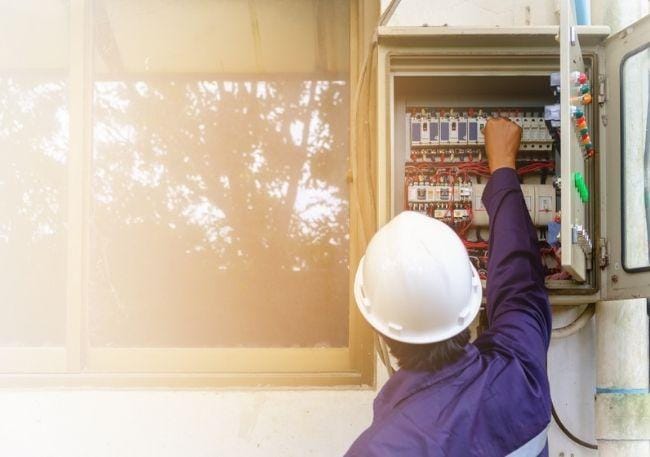

It’s recommended that you schedule an electrical wiring inspection whenever you buy new appliances, renovate your home, or if the property is older than 40 years. When you are looking at buying an older home, be sure to ask about what electrical system is being used. Historic homes tend to have outdated wiring systems; here are two of the most common ones, and the issues with them:
Used as early as the 1900s, this was the first type of electrical wiring installed in homes. These 100 year-old systems are considered obsolete by contractors. If installed correctly, knob and tube wiring can remain in the house, albeit with some limitations (no three-pronged electrical outlets). It does come with some risks, like the lack of a grounding conductor to help prevent electrical fires. The wiring insulation is a fire hazard as well. To add more amps to old homes, contractors make modifications to knob and tube wiring that can be unsafe. Your knob and tube wiring system can be repaired rather than replaced, but it should be inspected by a qualified electrician. It may be difficult to get house insurance if you have a knob and tube system.
This material was popularly used in homes between the ‘60s and ‘70s because it was less expensive than copper. But there’s a reason for the discounted price: aluminum breaks down more easily than copper does. This wiring poses a few serious safety hazards that homeowners should be aware of. Aluminum is a soft material, which means it can be damaged easily; this can create a weakness in the wiring. It expands when it heats up, meaning that screws will loosen due to the changing shape. Aluminum wiring is also prone to rusting or oxidization. When rust forms, it prevents electricity from flowing, which can result in overheating. If your home has aluminum wiring, you should contact an electrician to discuss replacing it.
Many homeowners are concerned about replacing wiring because they do not want to damage historic elements of their home. But failing to repair these systems poses a safety risk for all members of the household. Keeping your electricity up to code will prevent a fire or another hazard from occurring - one that can be even more damaging to your home than updating the electrical. In some cases, the electrical wiring doesn’t need a total replacement; an experienced electrician can modify it to suit the power demands of your household. An inspection can answer these questions for you and tell you whether your system needs a repair or an update.
Are you concerned about the wiring in your home? For inspection and repair, contact the electrical contractors in Winnipeg at Powertec Electric. We can identify the type of wiring in your house and find ways to increase its safety and efficiency. Call us today to speak with an experienced contractor about your electrical concerns.